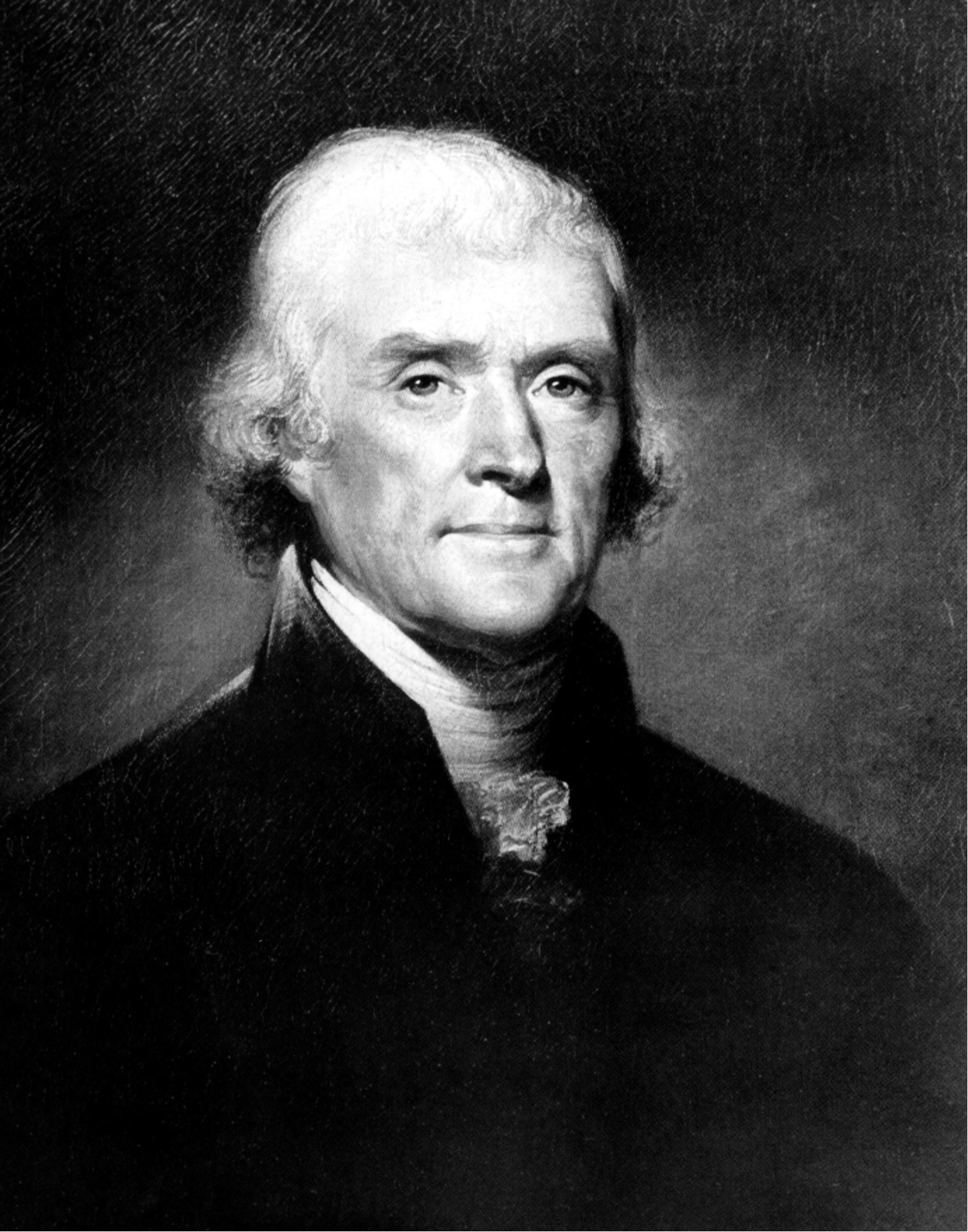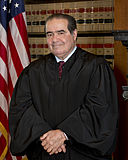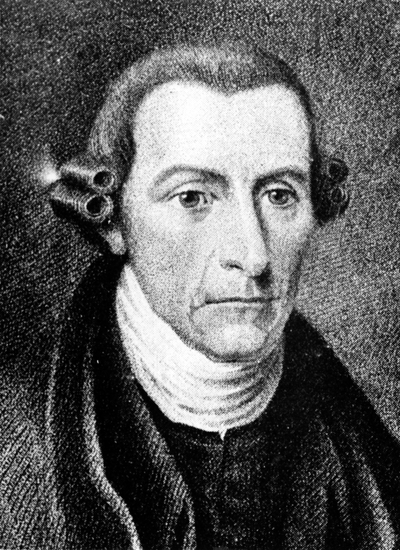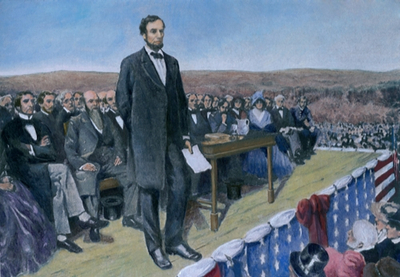FS Bullets & Brass Blogs
What is Liberty?

Definition of Liberty
The Merriam Webster online Dictionary includes four definitions for Liberty. For our purposes the first definition is most applicable.
1. the quality or state of being free:
- the power to do as one pleases
- freedom from physical restraint
- freedom from arbitrary or despotic (see DESPOT sense 1) control
- the positive enjoyment of various social, political, or economic rights and privileges
- the power of choice
According to Merriam Webster, Liberty is a Middle English word which came from the Anglo-French liberté which came from the Latin libertat-, libertas, from liber meaning free.
Merriam Webster notwithstanding, what, exactly, do we mean by the word Liberty as we use it today?
I often hear the words Liberty, Freedom, and Independence used as if they are the same thing. Are Liberty, Freedom, and Independence the same thing? If so, why do we have three different words?
Today—Liberty, Freedom, and Independence are often conflated, with their meanings confused. Sometimes this is an innocent mistake. Other times it is done intentionally to confuse the reader or to promote a hidden agenda.
I submit that while Liberty, Freedom, and Independence are related, they are not exactly the same thing. The differences are subtle but important. Recognizing and understanding the differences can help you claim, obtain and maintain Liberty, Freedom, and Independence for you and for our country. Ignoring or denying the difference will ultimately lead to the loss of Liberty, Freedom, and Independence.
Lets concentrate on the words Liberty and Freedom.
How were these two words understood and used from the founding of the United States of America through our nations history to the present time?
—§—
Thomas Jefferson thought of Liberty and Freedom as different things.
 The third President of The United States, Thomas Jefferson, was widely read and was heavily influenced by European enlightenment philosophers like Jean-Jacques Rousseau, Algernon Sidney, Henrey Home, John Locke and many others.
The third President of The United States, Thomas Jefferson, was widely read and was heavily influenced by European enlightenment philosophers like Jean-Jacques Rousseau, Algernon Sidney, Henrey Home, John Locke and many others.
For example; the phrase "life, liberty, and pursuit of happiness" which Jefferson included in the United States Declaration of Independence was previously expressed by John Locke in his "Two Treatises on Government" which was published in 1689.
In his formulation of the Declaration of Independence, Jefferson used the word Liberty in the same way John Locke used it, that is in the positive sense as in free to take action or do things like pursue happiness. This is what Jefferson meant when he wrote John Locke's phrase into the US Declaration of Independence"...life, liberty and the pursuit of happiness."
Whereas Jefferson thought of Freedom in the negative sense as in to be free from things like, despotic oppression, cruel and unusual punishments, or government without the consent of the governed. These notions of liberty and freedom held by John Locke and Thomas Jefferson echo similar ideas expressed earlier by the German enlightenment philosopher Immanuel Kant.
We can see these and other enlightenment ideas present in many of Thomas Jefferson's public actions and correspondence.
Here are some examples:
1. Thomas Jefferson represented Samuel Howell, an indentured servant, in the case of Howell V. Netherland before the General Court of Virginia in April 1770.
Among other things, Thomas Jefferson argued:
"Under the law of nature, all men are born free, every one comes into the world with a right to his own person, which includes the liberty of moving and using it at his own will. This is what is called personal liberty, and is given him by the author of nature, because necessary for his own sustenance."
Read more of the transcript at the Encyclopedia of Virginia
In this argument before the General Court of Virginia, Jefferson clearly uses the word Liberty in the positive sense. Jefferson asserts Liberty is the right of an individual to move at his own will or in other words to take action or do things without compulsion or restraint.
2. In a letter to Isaac H. Tiffany dated 4 April 1819, Thomas Jefferson wrote:
"Liberty then I would say that, in the whole plenitude of it’s extent, it is unobstructed action according to our will: but rightful liberty is unobstructed action according to our will, within the limits drawn around us by the equal rights of others. I do not add ‘within the limits of the law’; because law is often but the tyrant’s will, and always so when it violates the right of an individual."
Read the entire letter at Founders Online, US National Archives
In this letter to Isaac Tiffany, Jefferson equates liberty with "...unobstructed action according to our will..." This is another positive use of the word liberty. Jefferson clearly means to define the word liberty as a right to do things without obstruction even from the law which he sees as "often the tyrant's will."
3. In a letter to James Currie dated 28 January 1786, Thomas Jefferson wrote:
"...Our liberty depends on the freedom of the press, and that cannot be limited without being lost."
Read the entire letter at Founders Online, US National Archives
In his letter to James Currie, Jefferson complains about the press making false or at least unsupported claims about various people but believes keeping the press free from despotic government regulation which would limit or worse mandate what the press could say or print was the price of Liberty.
You can see how Jefferson uses the words liberty and freedom to mean very different things. He says "our liberty" meaning the liberty (or ability of the people to act according to their own will) is dependent on "the freedom of the press" from government control or restraint.
This positive sense of Liberty and negative sense of Freedom so obvious in these three examples is seen throughout Jefferson's writings.
Thomas Jefferson was a smart guy. He didn't use words lightly. Rather, he chose and used them carefully with intent.
This seemingly subtle difference between the words Liberty and Freedom is critically important. It is the reason these similar but different words exist. When we blur the meanings of similar words like Liberty and Freedom, the words loose their power. Understanding the true and complete meaning of similar words like Liberty, Freedom and Independence gives you power over those who would deceive you. It can help you resist those who would change the meanings of words for their own nefarious purposes.
 This is why Antonin Scalia who served as Associate Justice of the US Supreme Court from 1986 to 2016 frequently admonished us not to interpret the US Constitution and Bill of Rights by modern conventions but rather to understand them in the same way as those who wrote them by the definitions of the words they used at the time of their writing. This notion is called originalism. Justice Scalia's strong belief in originalism is evident in his consistent, conservative judgments.
This is why Antonin Scalia who served as Associate Justice of the US Supreme Court from 1986 to 2016 frequently admonished us not to interpret the US Constitution and Bill of Rights by modern conventions but rather to understand them in the same way as those who wrote them by the definitions of the words they used at the time of their writing. This notion is called originalism. Justice Scalia's strong belief in originalism is evident in his consistent, conservative judgments.
The idea of originalism can clearly be seen in Justice Scalia's majority opinion in the Case of District of Columbia v. Heller which holds the 2nd Amendment to the US Constitution guarantees an individual right to own and use a handgun for self defense unconnected with military service.
In his opinion, Justice Scalia quotes a previous case, United States v. Miller, which, among other things, says:
...the sorts of weapons protected are those "in common use at the time" finds support in the historical tradition...
Read Justice Scalia's majority opinion in the case of District of Columbia v. Heller on the SCOTUS Blog
The phrase "finds support in the historical tradition" in this quotation clearly illustrates Justice Scalia's understanding and application of originalism.
I agree with Justice Scalia's belief in originalism.
Applying Justice Scalia's advice to the words Liberty and Freedom can be very instructive.
The American founders generally thought of themselves as fighting for Liberty not for Freedom. This can be seen in the Declaration of Independence which speaks of "life, liberty and the pursuit of happiness." The word freedom does not appear even once in the Declaration of Independence. When the committee of five which included John Adams, Benjamin Franklin, Thomas Jefferson, Roger Sherman, and Robert Livingston wrote the line "life, liberty and the pursuit of happiness" in the Declaration of Independence, they could have chosen the word freedom instead of liberty, but they didn't. It seems clear to me, the founders intended to declare to the world a belief in the God given right to unobstructed action and not merely a list of grievances or things from which they wished to be free.
—§—
Patrick Henry thought of Liberty and Freedom as different things
 Patrick Henry, a delegate to the First and Second Continental Congresses, is often quoted as having said "give me liberty or give me death!" That short excerpt makes a pretty good sound bite. However, a longer quotation from his speech given at St. John's Henrico Parish Church in Richmond Virginia on 23 March 1775 is more illuminating,
Patrick Henry, a delegate to the First and Second Continental Congresses, is often quoted as having said "give me liberty or give me death!" That short excerpt makes a pretty good sound bite. However, a longer quotation from his speech given at St. John's Henrico Parish Church in Richmond Virginia on 23 March 1775 is more illuminating,
Is life so dear, or peace so sweet, as to be purchased at the price of chains and slavery? Forbid it, Almighty God! I know not what course others may take; but as for me, give me liberty or give me death!
Patrick Henry's speech is only 5 paragraphs long, but those 5 paragraphs are some of the most impassioned and important paragraphs leading up to the founding of America.
Like Thomas Jefferson, Patrick Henry is using the word liberty in the positive sense by contrasting it with "chains and slavery" which are both methods of limiting an individual's freedom of action. So I take Patrick Henry to be saying liberty is the right to take action or do things of ones own free will without the fear of chains and slavery. In this, Patrick Henry sounds much like Thomas Jefferson, John Locke and Immanuel Kant.
—§—
Abraham Lincoln thought of Liberty and Freedom as different things

Abraham Lincoln in his Gettysburg Address, delivered November 19, 1863, spoke of "...a nation conceived in liberty." Near the end of his speech, President Lincoln expressed a profound desire or perhaps a hope that "...this nation, under God, shall have a new birth of freedom...".
Like Thomas Jefferson and Patrick Henry, Abraham Lincoln was a smart guy. He was a successful lawyer and politician. Whether you love him or hate him, I'm sure you will agree that since he made his living with, by, and through words, President Lincoln choose his words carefully and used them in the context of his day.
President Lincoln was most certainly aware Thomas Jefferson and the other founders of America used the word Liberty in the positive sense meaning an individual's unobstructed right to act according to his own will and understood freedom in the negative sense meaning to be free from things.
So applying Justice Scalia's notion of originalism, Lincoln's Gettysburg Address should be interpreted in the following way.
When President Lincoln said "a nation conceived in liberty", he meant a nation conceived in each individual citizen's right to unobstructed action by his own free will. When he hoped "that this nation, under God, shall have a new birth of freedom", he meant he desired the citizens of the nation to have a new birth of freedom from a wide variety of government laws, regulations, and restrictions that had increasingly limited the liberty of all citizens from the conception of the nation in liberty to that day in 1863 when he delivered his Gettysburg address.
Click on the facsimile of the Bliss copy of President Lincolns Gettysburg Address to see the entire speech (all three paragraphs of it) in Abraham Lincoln's own hand writing.
—§—
Consider The Following
Why does the Declaration of Independence not say "life, freedom and the pursuit of happiness"?
Why did Patrick Henry not demand "give me freedom or give me death"?
Why did Abraham Lincoln in his Gettysburg Address not speak of "a nation conceived in freedom"?
Could it be that these great men and the many others like them understood Liberty to mean "free to do" and Freedom to mean "free from"?
Could it be that the committee of five (John Adams, Benjamin Franklin, Thomas Jefferson, Roger Sherman, and Robert Livingston) who wrote the US Declaration of Independence intended the citizens of their new nation to be "free to do" as they wished and not just to be "free from" an arbitrary list of things?
Could it be that Patrick Henry saw the only life worth living as one in which he was "free to do" and not just "free from"?
Could it be that Abraham Lincoln, the lawyer and President, understood the difference between Liberty and Freedom and recognized the nation was conceived by its founders for its citizens to be "free to do" and not just to be "free from"?
I believe the answer to these questions is a resounding, unequivocal Yes! Absolutely! Without a doubt!
 Contrast this with the 32nd president of the United States, Franklin Delano Roosevelt, who spoke of four freedoms in what was essentially his 1941 state of the union address delivered January 6, 1941. In this speech, President Roosevelt proposed all people everywhere should have freedom of speech, freedom of worship, freedom from want and freedom from fear.
Contrast this with the 32nd president of the United States, Franklin Delano Roosevelt, who spoke of four freedoms in what was essentially his 1941 state of the union address delivered January 6, 1941. In this speech, President Roosevelt proposed all people everywhere should have freedom of speech, freedom of worship, freedom from want and freedom from fear.
President Roosevelt could have said liberty of speech and liberty of religion since speech and religion are both things you do. However, liberty can't apply to want and fear since they are not things you do but rather things most people seek to be free from.
Franklin Roosevelt was a smart guy. It is obvious he chose Freedom over Liberty for a reason.
Roosevelt's "four freedoms" is an intriguing and some might say insidious notion. It begins to conflate liberty (meaning free to do) with freedom (meaning free from). It paves the way to fundamentally change our nation from one "conceived in liberty" (meaning free to do) as noted by Abraham Lincoln in his Gettysburg address, to a nation of freedoms (meaning free from some arbitrary list of things) that must be granted, provided and/or secured by the government. This shift from liberty to freedom has continued until today loud voices are clamoring for freedom from...insert your favorite identity here.
The notion that Americans should want to be "free from" an ever expanding list of real and/or imagined identity oppressions would be quite foreign and antithetical to the American founders and most of its citizens up to the time of Abraham Lincoln.
—§—
Conclusions

So—as you enjoy independence Day celebrations, take a moment to consider whether you want Liberty (meaning "free to do") or Freedom (meaning "free from").
I suggest Liberty is much more satisfying.
When you have Liberty and are "free to do", you can get yourself "free from" almost anything undesirable. When you don't have Liberty and are not "free to do", you are at the mercy of government agents who can dole out Freedom or retract it as they see fit.
When you next sing our National Anthem, The Star Spangled Banner, sing it with Liberty, not just Freedom, in your heart.
When you next encounter an American Soldier, don't just thank them for their service, rather thank them for helping preserve your Liberty thus keeping you "free to do"...insert your favorite activity here.
When you next hear someone close to you talk about the "Freedom" of America, ask them if they really mean Freedom or do they actually mean Liberty? If they really mean Freedom, are not sure, or thought Liberty and Freedom were the same, try to help them understand the difference between Liberty and Freedom and why what they really want is Liberty, not just Freedom. Or, perhaps more accurately, what we all need and deserve is the Freedom from anything that would prevent us from enjoying true Liberty.
Please post comments below. Tells us what you think about Liberty and Freedom. Are they the same? Are they not?
I look forward to your thoughts.
Jonathan Carter
General Manager
FS Reloading
—§—


Leave your comment